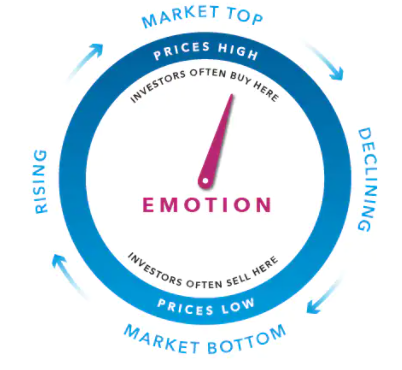
By Brendan Roath, EA, CFP® and Rod Roath, CPA, CFP®
Posted by Money Matters, Inc. on March 1, 2022
Fear of investment loss is part of being human. In fact, psychologist Dr. Daniel Kahneman was awarded the Nobel Prize for research that shows – People feel more pain from losing money than enjoyment from gains.
With the market down 8% this year, the natural urge to sell investments now is tempting. In this post, we present fact-based reasons to suppress the thought of selling while the stock market is down.
Reason #1 – Stock values appreciate over time despite wars and political catastrophes.
Since 1937 to last year-end, the S&P 500 has produced a 10.57% average annual return over all 10-year periods. Despite wars, recessions, political upheaval, and natural disasters over the last 85 years, stock values have appreciated amply, and rewarded individuals who stayed invested.
Reason #2 – Market declines happen every so often but do not last.
Volatility happens. In fact, stock market drops are more common than one might think. Since 1952:
- Stock market declines of 5% have occurred about three times per year and last an average of 43 days.
- Stock market declines of 10% have occurred about once per year and last an average of 110 days.
- Stock market declines of 15% have occurred about once every three years and last 251 days on average.
- Stock market declines of 20% have occurred about once every six years and last 370 days on average.
Reason #3 – Liquidating investments to avoid downturns could lead to missing strong market recoveries.
Long-term investing means staying in the market. In the past 70 years, each stock market downturn was followed by a recovery of losses, and new stock market highs. In fact, since 1929 every 15% decline has been followed by a 55% average return in the first year of recovery.
Maintaining a long-term perspective sticking to long-term investment goals is always important, especially when market downturns occur. In good times and bad times since 1937, the average annual return of the S&P 500 Index over any 10-year period is 10.57%. So, hang in there!
